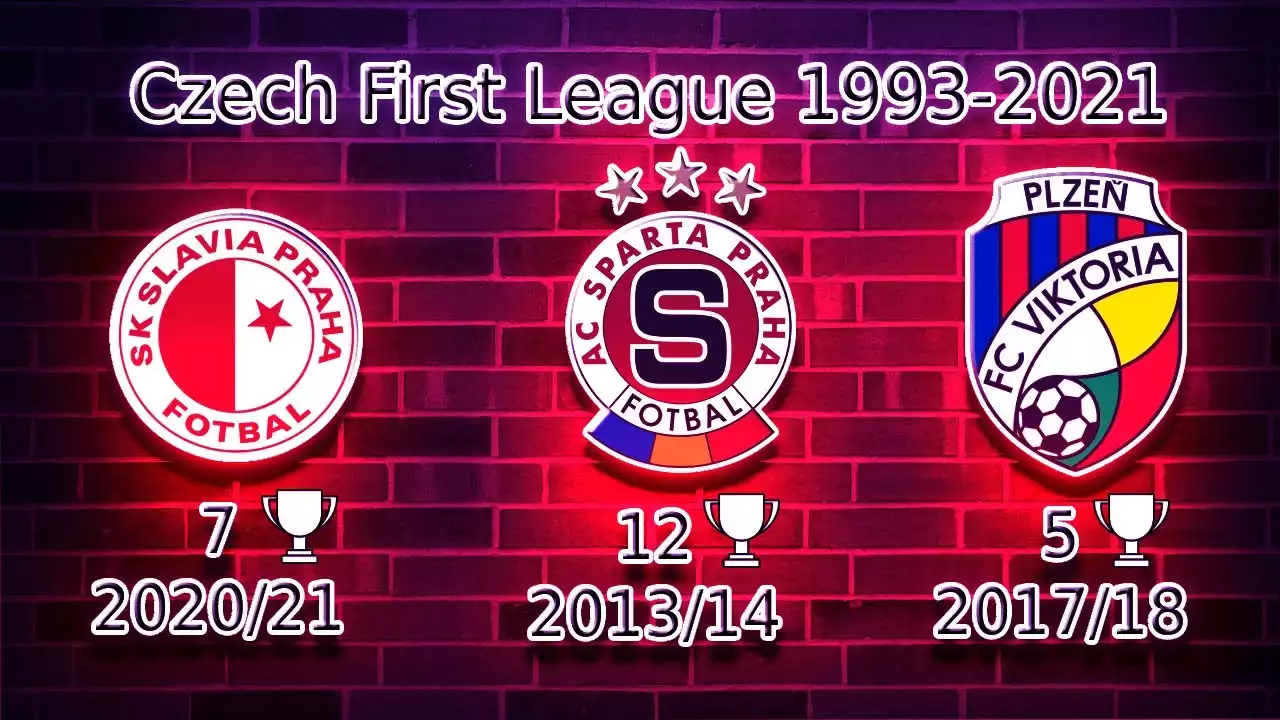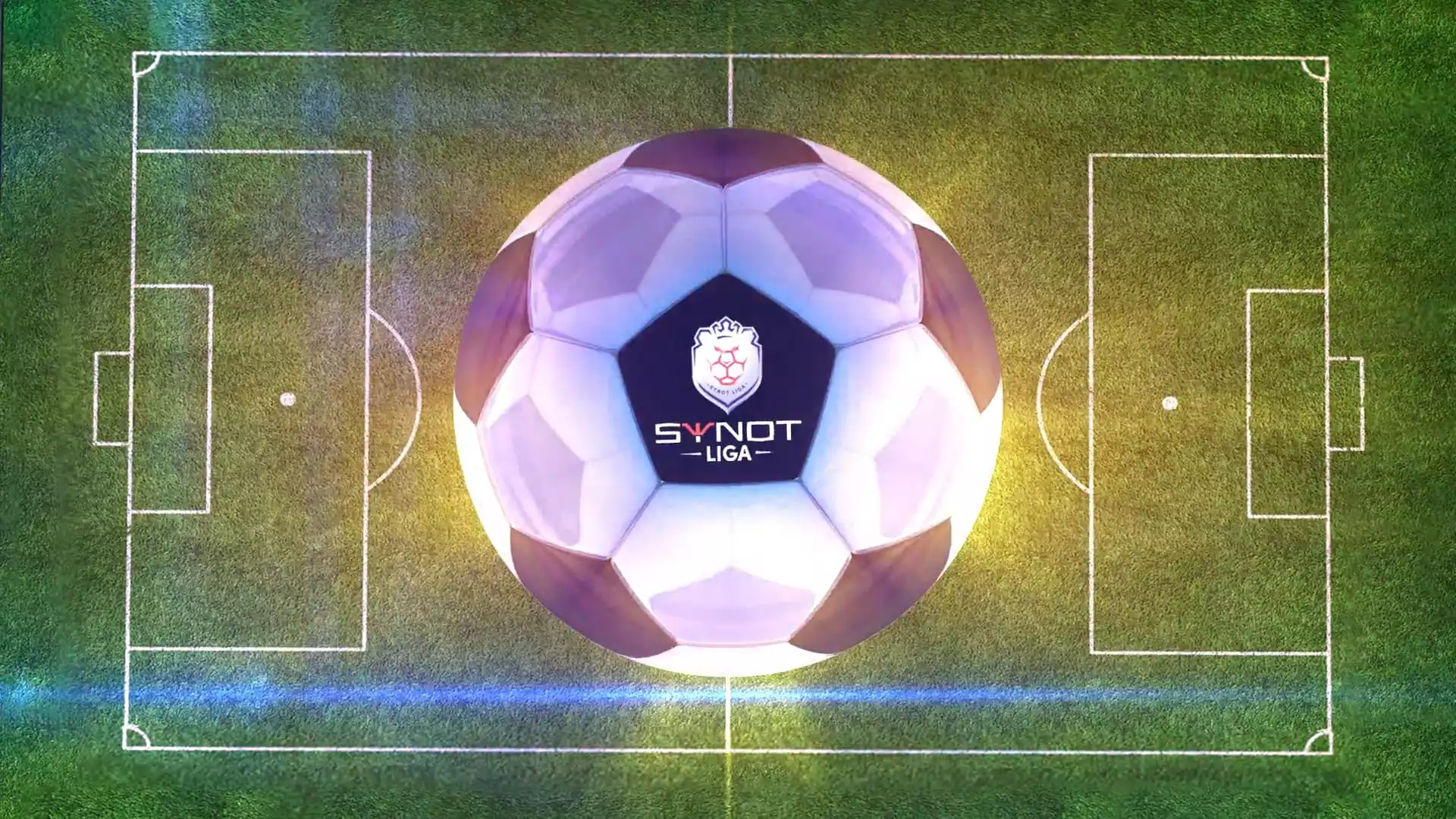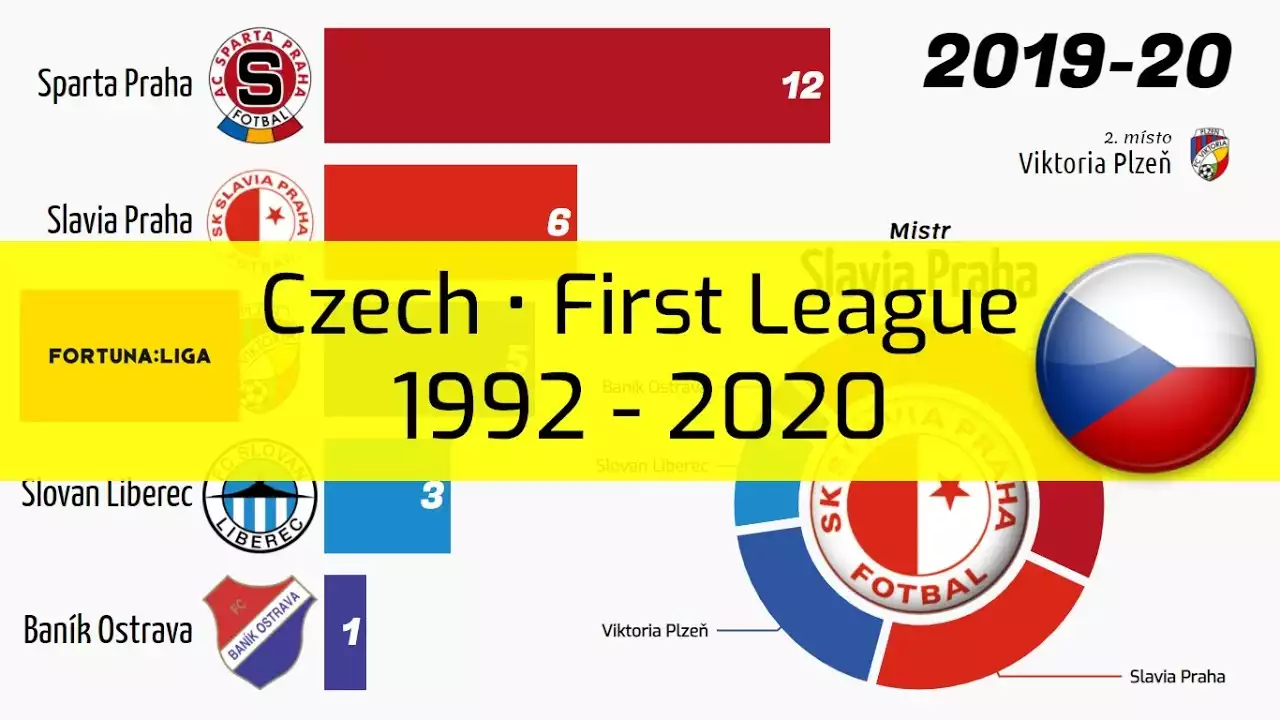Overview of the Czech First League
The Czech First League, also known as Fortuna Liga due to sponsorship reasons, is the top professional football league in the Czech Republic. Established in 1993 following the dissolution of Czechoslovakia, the league features 16 teams battling it out for the championship title and the chance to compete in European competitions. The league has gained prominence over the years, attracting talented players and passionate fans, making it one of the most prestigious football leagues in Central Europe.
The Czech First League is renowned for its competitive nature, with clubs fiercely vying for the top spots to secure European qualification or avoid the dreaded relegation. The league follows a round-robin format, where each team plays against every other team twice, once at home and once away. The team with the highest number of points at the end of the season is crowned the champion, while the bottom two teams face automatic relegation to the lower division.
Promotion and relegation play a crucial role in maintaining the competitiveness of the league and providing opportunities for clubs to rise through the ranks or face the consequences of underperformance. Let's take a closer look at how promotion and relegation work in the Czech First League.
How Promotion and Relegation Work in the Czech First League
Promotion and relegation in the Czech First League are determined by a combination of factors, including sporting performance, financial stability, and licensing requirements. At the end of each season, the team that finishes at the top of the second-tier league, known as the Czech National Football League, is automatically promoted to the Czech First League. Additionally, the team that finishes second enters a playoff against the team that finishes in second-to-last place in the Czech First League. The winner of this playoff secures a spot in the top division.
On the other hand, the two teams that finish at the bottom of the Czech First League are automatically relegated to the Czech National Football League. Relegation brings not only financial implications but also emotional and psychological challenges for the players, staff, and fans involved. It means a drop in income, potential player transfers, and the need to rebuild and regain promotion in the following seasons.
To ensure the financial stability and sustainability of clubs in the Czech First League, licensing requirements are in place. These requirements include financial audits, stadium infrastructure, and youth development programs. Clubs must meet these criteria to be eligible for promotion or to retain their position in the top division. This system helps maintain the overall quality and professionalism of the league.
Historical Context of Promotion and Relegation in the Czech First League
The promotion and relegation system in the Czech First League has evolved over the years, adapting to the changing landscape of Czech football. In the early years of the league's establishment, the top two teams from the Czech National Football League were automatically promoted, while the bottom two teams from the Czech First League faced relegation. However, as the league grew in popularity and competitiveness, the playoff system was introduced to provide a fair chance for promotion and to add excitement to the end of the season.
Throughout its history, the Czech First League has witnessed remarkable stories of clubs rising from the lower divisions to achieve success at the highest level. Sparta Prague and Slavia Prague, the two most successful clubs in Czech football, have experienced both promotion and relegation throughout their existence. These clubs serve as inspiration for smaller clubs aspiring to reach the pinnacle of Czech football.
The historical context of promotion and relegation in the Czech First League adds depth and significance to the journey that clubs undertake. It highlights the perseverance, determination, and resilience required to navigate through the challenges and seize the opportunities that promotion and relegation present.
Impact of Promotion and Relegation on Clubs and Players
Promotion and relegation have a profound impact on clubs, players, and the football ecosystem as a whole. For clubs, promotion to the Czech First League brings increased exposure, higher revenues from ticket sales, sponsorship deals, and television rights. It also opens doors to compete against stronger opponents in European competitions, providing a platform to showcase their talent on a larger stage.
On the flip side, relegation can be a significant setback for clubs. Financially, it leads to a decrease in revenue streams, making it harder to retain key players and invest in the squad. Relegation can also result in a decline in fan support and sponsorships, further exacerbating the challenges faced by clubs in their quest for a swift return to the top division.
For players, promotion offers the opportunity to test their skills against higher-quality opposition and potentially attract the attention of national team selectors or clubs from more prominent leagues. Relegation, on the other hand, can disrupt career progression, creating uncertainty about the future and the need to adapt to a lower level of competition.
The impact of promotion and relegation extends beyond individual clubs and players. It shapes the football landscape in the Czech Republic, contributing to the growth and development of the sport at the grassroots level. It fosters healthy competition, encourages talent development, and inspires young players to strive for excellence.
Strategies for Clubs to Secure Promotion or Avoid Relegation
Securing promotion or avoiding relegation in the Czech First League requires careful planning, strategic decision-making, and a strong footballing infrastructure. Clubs aiming for promotion often focus on building a competitive squad, investing in youth development programs, and strengthening their financial position. They emphasize the importance of long-term planning, ensuring that the club is sustainable and well-equipped to handle the challenges of the top division.
On the other hand, clubs fighting against relegation prioritize defensive stability, tactical discipline, and mental resilience. They may resort to changing managers, signing experienced players, or implementing new training methods to improve results and climb up the league table.
It is crucial for clubs to strike a balance between short-term success and long-term sustainability. Overreliance on short-term strategies, such as signing high-profile players or overspending on transfers, can lead to financial instability and potential relegation in the future. On the contrary, a well-structured youth development system and prudent financial management can lay the foundation for sustained success and future promotion campaigns.
Controversies and Debates Surrounding Promotion and Relegation in the Czech First League
As with any system, promotion and relegation in the Czech First League are not without controversies and debates. One of the recurring debates revolves around the playoff system, with critics arguing that it introduces an element of unfairness by allowing a team that finished lower in the league table to have a chance at promotion. However, proponents of the playoff system argue that it adds excitement and unpredictability to the end of the season, keeping fans engaged until the final whistle.
Another point of contention is the impact of relegation on smaller clubs with limited financial resources. Relegation can have severe financial implications for these clubs, making it difficult for them to recover and mount a promotion campaign in the future. Some argue for a more lenient approach, offering financial assistance or restructuring the league system to provide a safety net for relegated clubs.
Promotion and relegation also raise questions about the overall competitiveness of the Czech First League. Critics argue that the dominance of certain clubs, such as Sparta Prague and Slavia Prague, undermines the excitement and unpredictability that promotion and relegation aim to bring. They suggest implementing measures to level the playing field, such as introducing salary caps or revenue-sharing mechanisms.
Success Stories of Clubs that Have Benefited from Promotion
The Czech First League has witnessed numerous success stories of clubs that have risen from the lower divisions and made a mark in Czech football. One such remarkable success story is that of FC Viktoria Plzeň. The club, founded in 1911, experienced a period of relative obscurity before achieving promotion to the Czech First League in 2011. Since then, Viktoria Plzeň has established itself as a force to be reckoned with, winning multiple league titles and representing the Czech Republic in European competitions.
Another inspiring success story is that of FC Zlín. The club, based in the city of Zlín, gained promotion to the Czech First League in 2016 after a strong campaign in the second division. Despite being considered underdogs, FC Zlín defied expectations and finished in the top half of the league, securing qualification for the UEFA Europa League. Their remarkable journey serves as a testament to the potential and unpredictability of Czech football.
Success stories like these inspire smaller clubs and showcase the possibilities that promotion can bring. They demonstrate that with the right combination of talent, resources, and determination, clubs can overcome the odds and achieve greatness in the Czech First League.
Challenges Faced by Clubs That Have Been Relegated
Relegation from the Czech First League presents numerous challenges for clubs, both on and off the field. Financially, relegated clubs face a significant drop in revenue, making it challenging to maintain the same level of infrastructure, player salaries, and investments in youth development. They often have to sell their best players to generate funds or reduce wages to cut costs, which can further hinder their chances of a swift return to the top division.
Relegation also impacts fan support and morale. The loss of top-flight football can lead to a decline in attendance, reduced merchandise sales, and a general sense of disappointment among supporters. Rebuilding fan engagement and loyalty becomes a crucial task for clubs aiming to bounce back.
From a sporting perspective, relegation can disrupt team dynamics, leading to player departures, changes in coaching staff, and a need to rebuild the squad. The lower division may present different playing styles and challenges, requiring clubs to adapt quickly and find ways to achieve success in a different environment.
Clubs that have been relegated face an uphill battle to regain their place in the Czech First League. However, history has shown that with proper planning, perseverance, and a supportive fan base, clubs can overcome the challenges and emerge stronger from the experience.










